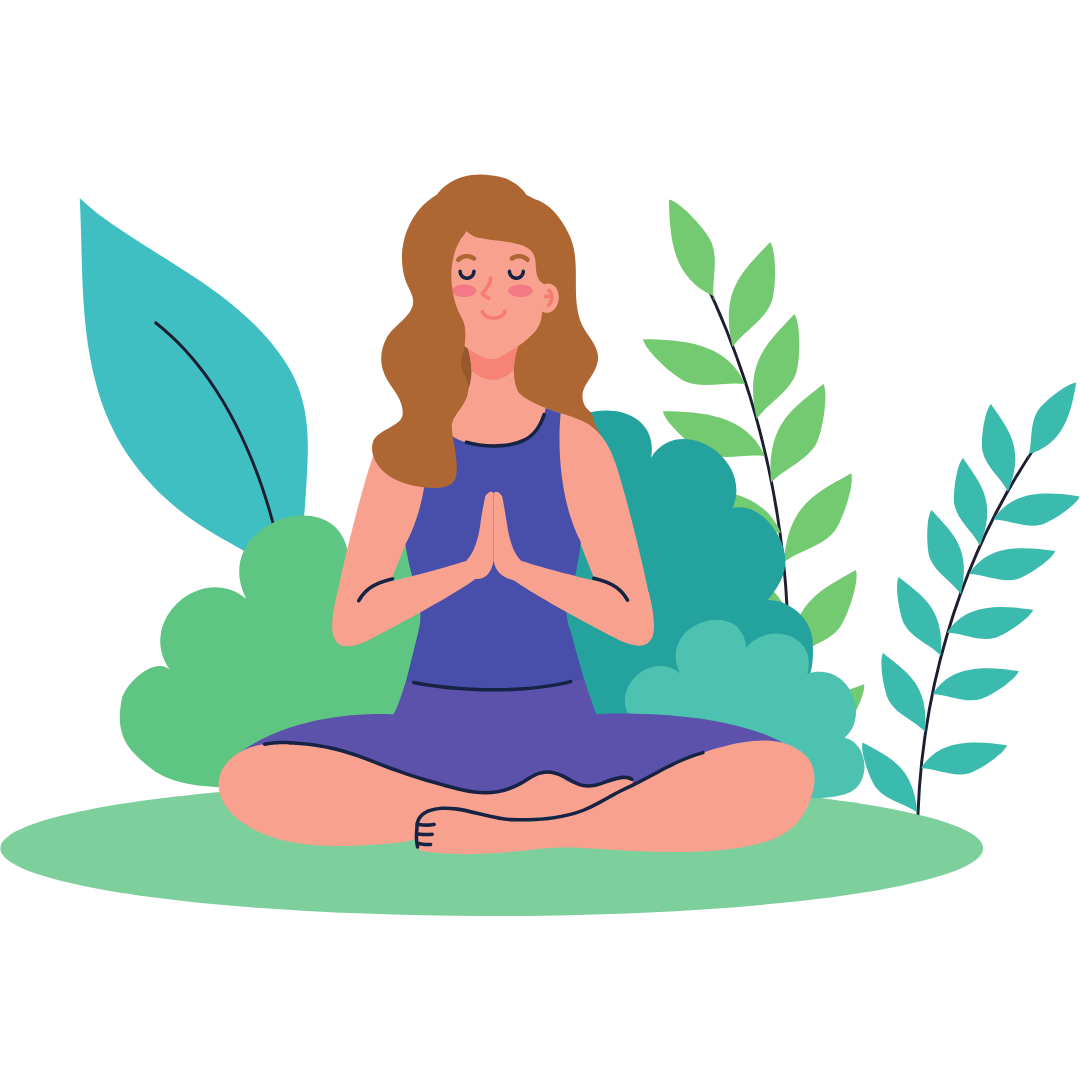Everyday Tips For Maintaining Mental Health Through Hardship
It's easy to forget how important mental health is when experiencing tough times.
We might feel guilty for not keeping up with our habits or letting ourselves think about the future because it seems too daunting a task. But mental health habits are crucial in maintaining one's well-being throughout any hardship.
One of the most recent difficulties we've all faced is the worldwide pandemic.
As a result, we've had to change our way of life. Now we're dealing with rebuilding while unsure about the future. On top of this, we each face our hardships, such as teaching our kids at home, going through the divorce process, and so much more.
This article will discuss some habits you can work on to improve your mental health and tips for building resilience as a whole.
Practice Self Care

Self-care habits can include some of the basic things we do for ourselves each day, but can often be overlooked when life gets busy.
When you practice the habits regularly, your body becomes comfortable with these routines in place.
Practice simple self-care by:
- Not pushing yourself too hard.
- Exercise as often as you can.
- Going to bed and waking up at the same time each day.
- Getting enough deep sleep.
- Eating a healthy diet.
- Taking a moment to breathe deeply in stressful situations.
Self-care also applies to your mind. Therefore, it's necessary to cultivate habits that benefit both your body and mind.
Set Realistic Goals
One of the habits you can practice to maintain mental health is setting realistic goals. Too often, we set lofty goals that are entirely unrealistic instead of taking things one step at a time.
Here are a few steps to help set achievable goals:
- Set small, achievable goals, so you don't lose motivation throughout the process.
- Adjust these smaller habits over time until they become bigger habits.
- Be kinder to yourself, and focus on improvement rather than perfection (perfectionism leads to discouragement).
Every person has a unique definition of "realistic." However, common realistic goals might include:
- Following a regular exercise plan.
- Studying for 15 minutes each day.
- Sending an email to someone you're trying to reach out to regularly.
- Writing in a journal every night or taking 30 minutes of quiet time.
- Perhaps, it's even reading one chapter of that book you've meant to.
As you can see, the goal doesn't matter as long as you can achieve it. So take things one day at a time, and don't get upset if you're not perfect every minute of the day.
Surround Yourself With Positive People
Having positive relationships can help enhance your mental health. Make plans with caring family members and friends, or look for other opportunities to get involved with people who are positive influences.
Sometimes, people cause more harm than good when they're in your life. If you notice a person is harmful to your mental health and wellbeing, it might be best to remove them from your social circle altogether.
It can be difficult letting go of relationships that have been around for a long time, but it can be for the best long-term.
Here are a few tips for removing negativity from your life:
- Set firm boundaries.
- Be honest with yourself about who is a negative influence.
- Limit or cut off your communication with negative people.
- Focus on habits that will benefit your mental health.
- Create time for you, away from negative people.
Negativity might result in a slew of issues if it isn't addressed. These kinds of problems can range from domestic violence in a relationship with an abusive partner or spouse to recognizing you've married a drug addict and need a divorce.
Consequently, the divorce procedure and the need for child custody negotiations and legislation have now entered the conversation. As a result, the suffering has not only impacted your wellbeing but those you care about, including children.
Limit Substance Use
The relationship between substance abuse and mental health is a complicated one. On the one hand, using medications, like SSRIs, can alleviate mental health symptoms by increasing serotonin levels or triggering dopamine production - which are neurotransmitters that help improve mood and reduce stress.
However, substance abuse often has the opposite effect on these brain chemicals when used for an extended period. At this point, substance use has become substance abuse and can lead to mental health issues in its own right.
Extended abuse of substances can cause depression, anxiety disorders, and even psychosis.
Getting rid of potentially harmful habits is one way to maintain your mental health during challenging times. Although it might be difficult at first, there are ways to limit your substance use:
- Avoid temptation and peer pressure.
- Find alternatives to drugs and alcohol.
- Choose healthier habits like eating well, exercising regularly, and getting enough sleep.
- Learn how to cope with stress in ways that won't harm you but instead benefit you.
- Seek help if you notice your habits are becoming problematic.
There is always a means out, regardless of where you are in your abuse. All you have to do is reach out and ask for help.
Disconnect From Social Media

Social media can be a fantastic way to maintain relationships with others, but it has the potential to become problematic if you're constantly scrolling through your feed.
Data shows that the more time you spend on social media the higher risk of mental health issues.
Some research shows that using social media frequently can negatively impact one's self-esteem because it includes comparisons to others' lives, which may be less problematic than yours at this moment in time.
However, in reality, according to studies, 60% of individuals who use social media have seen their self-esteem deteriorate negatively, and 50% of people claim that social media has a detrimental influence on their relationships.
Tips for disconnecting more easily can include:
- Limit the amount of time you spend on social media overall.
- Set timers on your phone for how long you can be on social channels.
- Lock yourself out of your phone for a few hours a day with the help of an app.
- Set boundaries with friends or family members who complain about your habits, but explain why you need a break from technology. Reach out if necessary.
- Take a moment to be grateful for the successes in your life at that moment.
Overall, unplugging from social media can help you rebalance your emotions and overall mental health, especially when dealing with unprecedented hardships.
Try Meditation and Mindfulness

Meditation and mindfulness are habits that can help reduce mental health issues by strengthening your emotional stability.
Although the idea of meditation might seem intimidating, it doesn't have to be complicated or frustrating if you don't enjoy it initially.
Meditation is a practice meant to encourage a sense of self-awareness to improve mental habits and combat negative thoughts.
Learning how to meditate is similar to learning any other new skill. Consider it like exercising a muscle that you've never exercised before. It takes consistent effort to feel at ease with it.
Tips for how to create a routine of meditation and mindfulness include:
- Set clear intentions for what you hope to achieve by meditating.
- Find a quiet place that's free of distractions and turn off your phone.
- Practice mindfulness during other activities like exercising, showering, or cooking dinner, so it becomes second nature.
- Use guided meditation apps on your phone if necessary. Recordings can last anywhere from five minutes to an hour, so don't feel overwhelmed if you're starting.
- Find a routine that works for your habits and stick with it.
The most important part of mindfulness is knowing how much mental energy you have left throughout the day.
Routinely Enlist Professional Help
No matter how much you attempt to practice habits that improve mental health, sometimes the only thing left to do is seek out professional help. Depending on your situation, this could be in the form of a therapist, sobriety coach, or even a lawyer.
Though it may seem scary at first, it's important not to feel ashamed if seeking assistance. More importantly, it doesn't need to be an emergency to seek out help for yourself.
You can talk to a counselor about anything, but here are some more situations in which talking with one is beneficial:
- When you're not able to sleep, and it's negatively impacting your day.
- If you can't stop feeling overwhelmed or panicked.
- When the stress is affecting other aspects of your life like work, family life, or school.
- If you feel like your habits or addictions are no longer safe and what to do.
- When coping with a difficult breakup and looking for help on how to move on.
- Recognize the signs you are ready for or about to go through the divorce process and need guidance.
- Dealing with the death of a loved one and needing support.
There are several reasons to seek the assistance of professionals. Whether it involves what to ask your divorce attorney on your first visit or how to cope with the loss of a pet, there is no right or wrong time or scenario when it comes to helping oneself.
You don't have to deal with your situation alone, help is just a phone call away. If you or someone you know is struggling, reach out for help from those trained in mental health habits and learn how to live your best life.